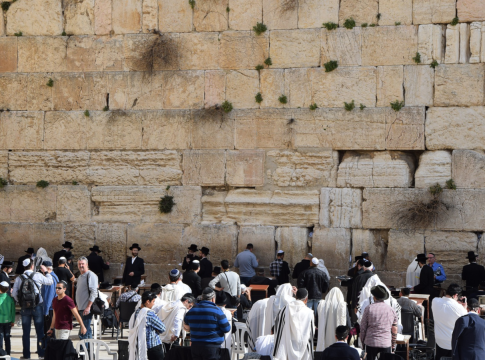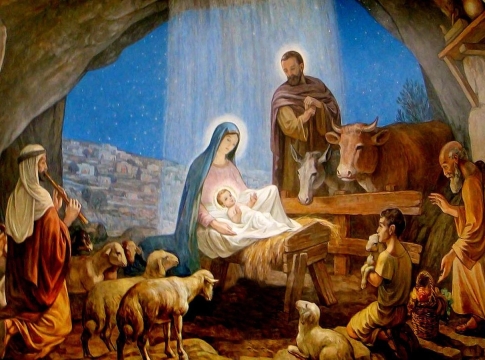
The idea that [God the Son] took on human form and underwent a murderous death is among the most astounding of Christian doctrines. Though He was crucified like a criminal, He is the everlasting, holy, and beautiful Lord of the universe who has existed since the beginning of time and will continue to do so. One wonders: who would ever do something like that? Who and why killed Jesus? Let’s think about a few solutions.
(Why) did the Roman official Pontius Pilate kill Jesus?
It was Pontius Pilate who actually gave the order to crucify Jesus. He served as the Roman governor of the Jewish region known as Judaea. He was a resident in Caesarea for the most part. However, he was in Jerusalem during the Jewish Pesach feast, most likely because there was a greater chance of political upheaval due to the large number of Jews gathered at the feast.
Pilate discovered that Jesus was innocent as soon as he was handed away. Pilate repeatedly attested to this (see, for example, Luke 23:4; Luke 23:14–15; Luke 23:22). Still, he handed Jesus up to be killed. Why? Because he was worried that if he denied the crowd’s request, they might spark a riot and damage Pilate’s political reputation (see Matthew 27:24 and John 19:12), he wished to appease them (Mark 15:15). Pilate put his personal well-being ahead of justice. He was a timid person. But Jesus answered him, “Unless it had been given to you from above, you would have no authority over me at all. Thus, according to John 19:11, “he who handed me over to you has the greater sin.”
(Why) did the crowd kill Jesus?
Pontius Pilate delivered Jesus to be crucified, but he did so under pressure from the Jewish crowd. These people took full responsibility for Jesus’ death: “All the people answered, ‘His blood be on us and on our children!’” (Matthew 27:25). Tragically, this idea that the Jews killed Jesus Christ has fueled antisemitism over the centuries. That is absolutely mistaken. At the same time, it is very sad to see that the people who Jesus wanted to save, turned their back on Him. In Matthew 23:37, Jesus laments: “O Jerusalem, Jerusalem, the city that kills the prophets and stones those who are sent to it! How often would I have gathered your children together as a hen gathers her brood under her wings, and you were not willing!”
Being a Jew, Stephen did not hold back while speaking his mind. “You stiff-necked people, uncircumcised in heart and ears, you always resist the Holy Spirit,” he said to his audience. You do as your fathers did. Which prophet was spared the persecution of your fathers? Acts 7:51–52 states, “And they killed those who foretold the arrival of the Righteous One, whom you have now betrayed and murdered.” But there’s more to it than that. Their religious leaders energised the crowds. Examine Mark 15:11, for instance.
(Why) did the religious leaders kill Jesus?
Jesus frequently disagreed with the establishment of Jewish religious authorities during His earthly career. They repeatedly attempted to ensnare Him in His own words (see, for instance, Matthew 16:1, Mark 10:2, John 8:6, and 22:15). They disputed His authority (Matthew 21:23) and asserted that Beelzebul, “the prince of demons,” was in control of Him (Matthew 12:24). They made every effort to stop Jesus from becoming popular because He questioned their own status and power. They even decided that anyone who acknowledged Jesus as the Messiah would be excommunicated from the synagogue (John 9:18–24), effectively removing them from the religious community, which was also a significant part of society.
The elders, scribes, and high priests conspired to assassinate Jesus after realizing that their efforts had been in vain and that large crowds had been following Him (Matthew 26:4). They planned to arrest Jesus covertly. They solicited false testimony against Him (Matthew 26:59), energised the populace, and thus forced Pontius Pilate to order the execution of Jesus. So, it is true that Jesus’ death was caused by these religious authorities. However, this is not the only solution.
(Why) did Satan kill Jesus?
[Satan attempted to lure Jesus into sin when He started His public ministry] (Matthew 4:1-17; Luke 4:1-12). Since Jesus had committed sin Himself, if He had given in, He would not have been able to atone for humanity’s sin. Jesus, however, resisted the urge. He proclaimed the Devil to be at war. Many demon-possessed individuals approached Jesus while He was speaking and healing, and they verbally abused Him. However, these folks had to obey Jesus when he instructed the demons to leave them. The servants of Satan were weaker than Jesus.
In an ultimate attempt to attack Jesus, Satan “entered into Judas called Iscariot, who was of the number of the twelve [disciples]. He went away and conferred with the chief priests and officers how he might betray Him [Jesus] to them” (Luke 22:3-4). In John 8:40-45, Jesus says something similar to some Jews: “You seek to kill me, a man who has told you the truth that I heard from God. … You are of your father the devil, and your will is to do your father’s desires. He was a murderer from the beginning, and does not stand in the truth, because there is no truth in him”. So, behind all these human agents is the spiritual influence of Satan. He is Jesus’ arch enemy and finally seemed to succeed when Jesus died on the cross! But we need to delve deeper still.
Did I kill Jesus?
Jesus’ demise was not by chance. It was hardly an unexpected turn of events. Satan did not win this time. It took [Jesus’ crucifixion] to atone for human sin. According to Isaiah 53:5, “He was crushed for our iniquities; He was pierced for our transgressions.” Thus, I am accountable for Jesus’ murder even though I was not even alive when He was killed some 2000 years ago. The song “How Deep the Father’s Love for Us” by Stuart Townend eloquently expresses this terrible truth:
Observe the man hanging on a cross with my sin resting on His shoulders. Shocked, I can hear my mocking voice among the mockers. He was held there by my sin until it was completed; His last breath has given me life, and I know that it is now complete.
Jesus laid down His own life
But there is one final layer to this question. For Jesus was not forced to die in humanity’s place. He could have kept His glorious position at the right hand of God the Father forever. He did not have to become human, suffer and die. But He wanted to. He did so out of His unending love. As the apostle John writes, “By this we know love, that He laid down His life for us” (1 John 3:16). That is the final answer to the question who killed Jesus: Nobody did. He gave His life voluntarily and chose to obey the Father’s will. This becomes clear in Jesus’ last words before He died: “Then Jesus, calling out with a loud voice, said, ‘Father, into Your hands I commit my spirit!’ And having said this He breathed His last” (Luke 23:46).
I’ll end my essay with a quotation from Jesus: “I lay down my life so that I may pick it up again, and for this reason the Father loves me.” It’s not taken from me, but I voluntarily lay it down. I have the power to set anything down and pick it back up (John 10:17–18).
Lord Jesus, we are grateful for Your unwavering love toward us sinners. You gave us eternal life by dying in our place, and you died for us. Before all time, now and forever, be glory, grandeur, dominion, and power to You.





